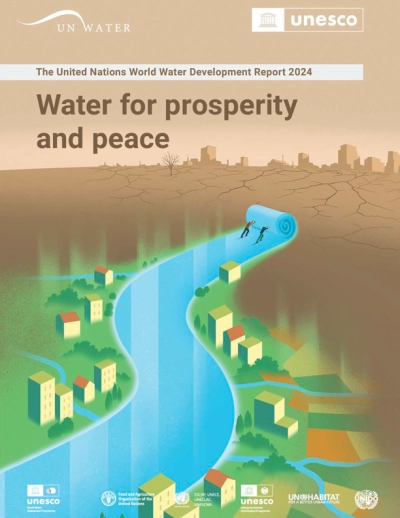Waternet
Water wars!
They have been predicted since the 1970s. The Egyptian president Sadat, for instance, referred to water scarcity as "the only matter that could take Egypt to war again".
Since then, various indicators on water use and water availability demonstrate that water scarcity has increased — but these water wars did not happen. Even more, societies seemed to be quite resilient to the effects of water scarcity.
Nevertheless, this idea of water wars continues to live on in media reports and political discourses. For what purpose? Who benefits? Who loses? These are 'questions we would like to address with this website.
Our focus will be on two basins in politically very volatile regions: the Nile River Basin and the Jordan River Basin. We will bring together many facts and figures about water availability and water use, to have a better understanding of what water scarcity is about in these regions. Based on that analysis we will dissect the contradiction between the scarcity and security discourses, and actual water politics in these basins. We will look into issues that link water and development, and how governance of increasingly scarce water resources relates to conflict over access to and control over these resources. Especially when geopolitics enter the stage, and ideology and 'security' gets in the way of development.
Information on this site is organised in three main sections: the Nile River Basin, water politics in the Jordan River Basin and a more worldwide context of international water resources. You can explore them using the menu on top of the page.
Welcome!

The contradiction of 'development' and 'security'
Below, we discuss a bit more the context of the website.
Water doesn't care about most borders, it just flows from high to low, along pathways that are shaped over the centuries. There is only one border that really matters: the line that separates watersheds.
But water and political borders are a curious combination. Political borders cut up a natural system into sections that can be 'owned', become property. Often, this happens according to the principle of "What is mine, is not thine".
Drawing such lines on maps makes it more difficult to manage water resources as a whole, interconnected system. Governance of water resources will then be sub-optimal, and everyone in the basin will be affected in some way or another. As a state, being responsible for the welfare and wellbeing of your citizens, you then have to come up with a credible explanation on why the best possible governance of water resources and optimal water services can't be achieved. 'Water scarcity' is then often a good excuse.
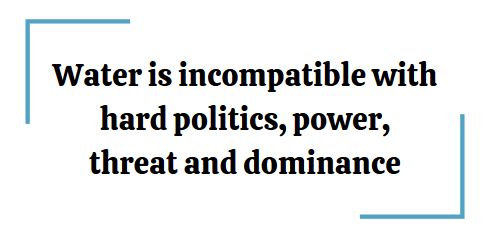
When states compete over scarce water resources, often 'national security pops up as a concern. Water then gets politicized - 'securitized' - and becomes a source for division rather than something that brings neighbours together. As national security and ideology are closely linked, it will then be increasingly difficult for states to join efforts to overcome the challenges of good water governance - for the wellbeing of all of their people.
I am not saying that the water issue is something that can be solved with a technical approach, just needs some engineering and technology to fix it. On the contrary, water is most political, as it is key to development - and other soft political concepts like equitability, needs, wellbeing, justice. And therefore incompatible with hard politics, power, threat and dominance.
Water is extremely securitised in the Middle East and the Nile River Basin. Historical and present tensions over water resources gave birth to the discourse of 'water conflicts' and 'rivers of fire', images that popular media are eager to adopt. Because on the face of it, violent interstate competition over scarce water resources doesn't seem so strange in the context of the Middle East with all its military conflicts and continuous political tensions between states. So why shouldn't water scarcity add fuel to the fire in the Israeli-Arab conflict, or spark something more dangerous among Turkey, Kurds, Saudi Arabia or Iran in the Great Game of the Persian Gulf?
Past experiences demonstrate that cooperation is however more likely to happen than open and violent conflict over water. Even now, with tensions rising over between Egypt and Sudan on one side and Ethiopia on the other over dams on the Nile, adversaries still sit together in the conference rooms of the Nile Basin Initiative.
Read more:
- Article: Security as a threat to development in the Nile River Basin
- Article: Israeli water policy in a regional context of conflict
Agenda 2030
 Sustainable Development GoalsIn 2015, the United Nations member states adopted the Sustainable Development Goals, the "17 goals to transform the world" as part of a new development Agenda 2030. Water is an interlinking element in these SDGs: not only where it is mentioned as a Goal as such (clean water, sanitation) but is directly or indirectly linked to every other Goal. This is the case for obvious Goals like climate action or life on land, but also for ending poverty or quality education.
Sustainable Development GoalsIn 2015, the United Nations member states adopted the Sustainable Development Goals, the "17 goals to transform the world" as part of a new development Agenda 2030. Water is an interlinking element in these SDGs: not only where it is mentioned as a Goal as such (clean water, sanitation) but is directly or indirectly linked to every other Goal. This is the case for obvious Goals like climate action or life on land, but also for ending poverty or quality education.
Water Action Decade
In December 2017 UN Member States adopted United Nations General Assembly resolution 71/222 on an International Decade for Action on ‘Water for Sustainable Development’ 2018-2028. This Water Action Decade will accelerate efforts towards meeting water-related challenges, including limited access to safe water and sanitation, increasing pressure on water resources and ecosystems, and an exacerbated risk of droughts and floods.
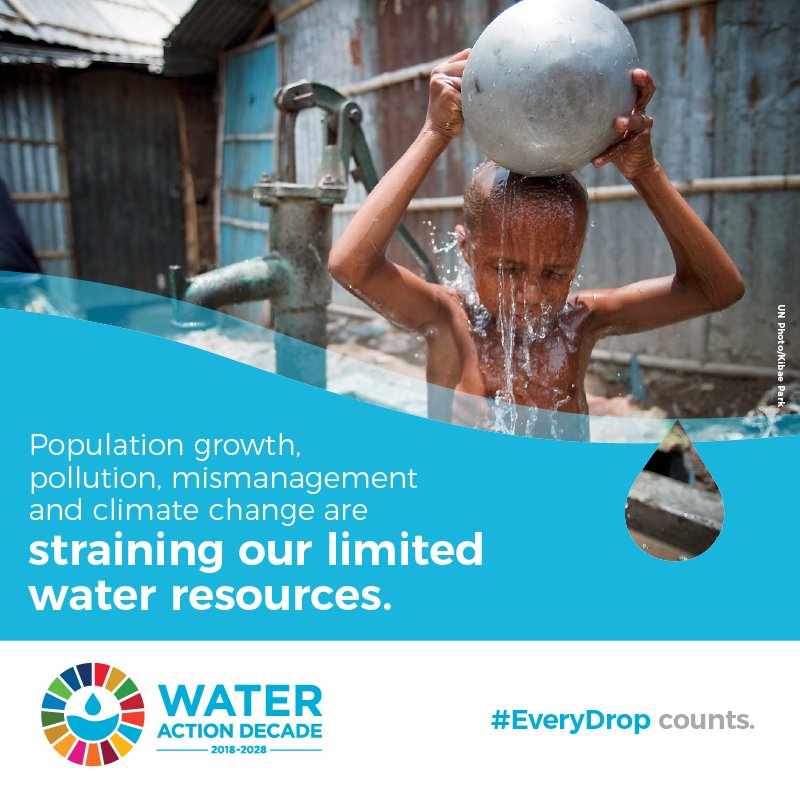
Water diplomacy
Definitions
1. By Susanne Schmeier in What is water diplomacy and why should you care?
"Water diplomacy can be defined as the use of diplomatic instruments to existing or emerging disagreements and conflicts over shared water resources with the aim to solve or mitigate those for the sake of cooperation, regional stability, and peace."
- Water diplomacy is not about applying technical instruments, like transboundary water management
- Water diplomacy is not about applying instruments of water cooperation, like institutions and agreements
- This also defines water diplomacy actions and actors versus other actions and actors in thransboundary water
- But it connects with water manangement and water cooperation, as it also aims to address issues of water scarcity, access to water and other challenges and water-related risks.
2. In their editorial to the 2019 Special Issue on water diplomacy of the Journal of Hydrology (Water diplomacy: the intersect of science, policy and practice), Martina Klimes, David Michel, Elizabeth Yaari and Phillia Restiani introduce water diplomacy as:
"as a multidisciplinary concept that draws on technical, political, and socio-economic knowledge; located at the intersect of science, policy, and practice, and including both state and non-state actors". They don't draw a sharp line between water diplomacy (in the strict sense that Schmeiers uses) and other transboundary actions in water, like management and cooperation. This broader interpretation thus also leads to a broader group of "water diplomacty actors".
3. Alternative terminology: hydro-diplomacy/hydrodiplomacy, blue diplomacy.
Policies
UN Security Council debate on water, peace and security, 22 November 2016
- Remarks by the UN Secretary General.
- Statement by the ICRC to the UN Security Council.
European Union
- "Water" was recognised as a foreign policy issue by the European member states in 2013. On 19 November 2018, the EU ministers of foreign affairs adopted Conclusions on water diplomacy, also recognising its importance for peace, security and stability.
- Aditionally, in the Conclusions of the EU Council of 19 November 2021, the EU reaffirms its "diplomatic engagement on water, especially transboundary water cooperation, as a tool for peace, security and stability. The conclusions call for further implementation in this regard and for an increase in synergies between water, climate and energy diplomacy."
OECD - water diplomacy
Literature
- Elevating Critical Voices in Water Diplomacy. Side event hosted by Women in Water Diplomacy Network and partners, at the 2023 UN Water Conference on Wednesday, March 22, 2023.
See the Report - Koch, E. Patel, E. et al. 2023. Women in Water Diplomacy Network After Action Report:The Water Diplomacy Symposium and Network Engagement in the 2023 UN Water.ConferenceWomen in Water Diplomacy Network After Action Report:The Water Diplomacy Symposium and Network Engagement in the 2023 UN Water.Conference. Washington DC, USA and Stockholm, Sweden. - Journal of Hydrology: special issue on water diplomacy, edited by Martina Klimes, 2019.
"This Special Issue presents a set of articles representing different perspectives and approaches to addressing challenges and opportunities related to the management of shared water resources from researchers, foreign policy practitioners, thought leaders, and development practitioners. Through the collected articles, diverse entry points are identified aiming to leverage cooperation over shared freshwater resources to contribute to stability, community resilience, conflict transformation, peacebuilding and regional cooperation."
Understanding the hydrological cycle in the Anthropocene
The hydrological cycle (or the natural water cycle) is often considered to be a rather simple story about water evaporating from the ocean, rain falling on land and rivers taking the water back to the ocean.
But it is not. The water cycle is a more complex system and proper understanding of these complexities is essential to understand the challenges of environmental change (including climate change) and human interference in the fresh water resources on earth.
In this article, we discuss the work of a group of scientists (Abbott et al., 2019b) who analysed the presentation of the water cycle in education, research and policy documents. They linked the many misrepresentations of the hydrological cycle and the many overestimations of sustainably available water resources with a problematic misunderstanding of the challenges to our freshwater resources posed by climate change, human use of land and water, and the failings of water management to offer adequate responses to these challenges.
With this article, we would like to share the conclusion of Abbott et al. (2019b) with a wide audience of educators, policy makers and students. We will also illustrate the misrepresentation of the hydrological cylce with a couple of cases from science and policy, and a we will continue to collect good practices.
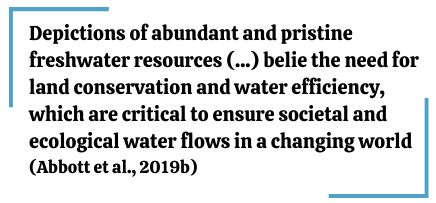
(follow this link to the version in Dutch: De waterkringloop in het Antropoceen)
World Water Day 2021: valuing water
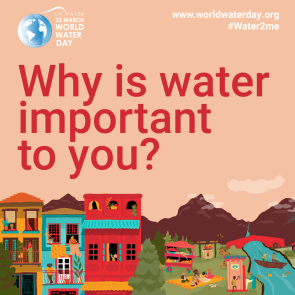 World Water Day in 2021 is about "what water means to people, its true value and how we can better protect this vital resource".
World Water Day in 2021 is about "what water means to people, its true value and how we can better protect this vital resource".
From the World Water Day 2021 toolkit:
"How we value water determines how water is managed and shared. The value of water is about much more than its price – water has enormous and complex value for our households, culture, health, education, economics and the integrity of our natural environment."
World Water Day 2021 therefore looks at "valuing water" from 5 different perspectives:
- Valuing natural water resources and ecosystems
- Valuing water infrastructure: storage, treatment and supply
- Valuing water services: drinking water, sanitation and health services (WASH)
- Valuing water as an input to production and socio-economic activity: agriculture, energy, business
- Valuing water in culture, recreation an spirituality
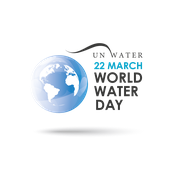
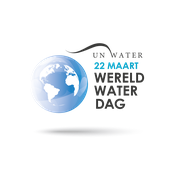
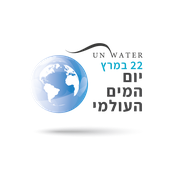
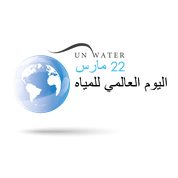
International Water Law
Items related to international water law and transboundary water in general
- International Water Law Project: The International Water Law Project website was created to provide pertinent information on international water law and policy and related topics. Specifically, it offers treaties, articles, news stories, case law, Internet links, and other relevant information. Many of the materials, such as treaties and articles, are offered in full text.
- David J. Lazerwitz, The Flow of International Water Law: The International Law Commission's Law of the Non-Navigational Uses of International Watercourses
- The Hydrology and Water Resources Programme (HWRP) of the World Meteorological Organisation (WMO).
- The Dublin Statement on water and sustainable development (1992).
- Jonathan Kuttab & Jad Isaac, Approaches to the legal aspects of the conflict on water rights in Palestine/Israel, Applied Research Institute, Jerusalem.
- 1st Petersberg Round Table - International Dialogue Forum. Global Water Politics: Cooperation for Transboundary Water Management, Petersberg/Bonn, 3 - 5 March, 1998.
- UNITED NATIONS 1997 WATERCOURSES CONVENTION AND THE EUPHRATES-TIGRIS RIVERS.
- The Law and Politics Internet Guide, a general site about international law. Designed for the legal profession and layperson, Law and Politics Internet Guide is a source for legal and government research. Each general category leads the user to carefully selected links, each with a brief description.
- Transboundary water resources in international law. Chapter from a book (who can help me with the references?).
- The World Water Council
World Wide Water
World Water in the News
- Water news items in the Guardian newspaper - international edition.
- Water news from ScienceDaily, one of the Internet’s most popular science news web sites.
- World Economic Forum: water archive
- Water - an overview of articles from National Geographic.
- Topic Water - The Economist
- "Carnets d'eau" - the water blog of Le Monde Diplomatique
Also from Le Monde Diplomatique: archive of articles, maps and reviews about water - Der Spiegel - news overview on drinking water
Institutions involved in water and sanitation - governance
- UN Water
Over 30 UN organisations carry out water and sanitation programmes. UN-Water’s role is to coordinate the UN response to water related challenges. - FAO Water
A subsite for the UN Food and Agriculture Organisation FAO. - World Bank - Water
The World Bank is the world’s largest multilateral source of financing for water in developing countries. - The World Water Council
The World Water Council is an international multi-stakeholder platform, bringing people together through active hydro-diplomacy, exploring new ideas and concepts and discussing issues while encouraging exchanges and networking. It organizes the World Water Forums. - World Water Forum
This is a very big event, taking place every three years since 1997. Next event will take place in Dakar, 21-26 March 2022. - World Water Week
Every year in August, the Stockholm International Water Institute (SIWI) organizes the World Water Week. It links researchers with policy makers and fosters partnerships among different actors in the water sector. The latest edition was held on 23-27 August 2021 under the theme "Building Resilience Faster".
Data collections and indicators
- Food and Agricultural Organisation (FAO): AQUASTAT is the most quoted source on global water statistis.
AQUASTAT is FAO's global water information system, developed by the Land and Water Division.
The data collections include:
- AQUASTAT Database
- Country profiles
- The website also contains a practical Glossary of water terminology.
- Sustainable Development Goal 6: clean water and sanitation (but in fact much wider than that: also water quantity, governance, efficiency)
- UN Water SDG 6 Data Portal
The SDG 6 Data Portal brings together data on all the SDG 6 global indicators and other key social, economic and environmental parameters. Through maps, charts and tables, the portal offers tailored options for visualization and analysis of the data, including on interlinkages (description from the UN Water website).
Particulalry interesting are the country reports, with a summary and detailed graphs. - SDG Monitoring
About SDG 6 monitoring and reporting; support available to countries for each of the SDG 6 global indicators; country experience with SDG 6 monitoring and reporting.
But also detailed information on the 11 different indicators for SDG 6 and the 2020 data drive. - FAO: Details on indicators 6.4.1 (Change in water use efficiency over time) and 6.4.2 (Level of water stress)
- UN Water SDG 6 Data Portal
- UNICEF and WHO Joint Monitoring Programme
This is the custodian of global data on drinking water, sanitation and hygiene (WASH).
An interesting document is "Safely managed drinking water" (2017). - World Meteorological Organisation (WMO) - Global Hydrological Data Centers
- Global Runoff Data Center (GRDC): supports data collection and data management projects, disseminates information about national data holdings
- International Groundwater Resources Assessment Center (IGRAC): supports efforts in groundwater monitoring and management as well as worldwide exchange of groundwater information and knowledge and capacity building
- International Data Centre on Hydrology of Lakes and Reservoirs (HYDROLARE): establishes, develops and updates an international database on hydrological regime of lakes and reservoirs
- World Bank
- World Bank Water Data is a meta-database portal that refers to online data sets. A very interesting and important new tool to find national and thematic data.
- Open Data. Includes World Development Indicators, with water-related development statistics.
- United Nations Statistics Division (UNSD)
Has a section on environmental statistics.
International Water Law
- The International Water Law Project is a website dedicated international water law and policy issues. It covers treaties, case law and institutions, and is very resourceful on articles and news updates related to international water resources.
- The Statement on water and sustainable development (1992), made at the International Conference on Water and Environment. In this "Dublin Statement, the principle of Integrated Water Resources Management (IWRM) has been an accepted as the rationale to drive interventions and development in the water sector.


